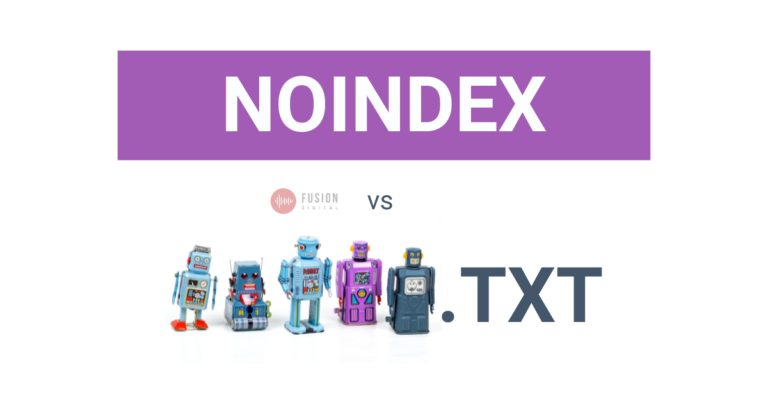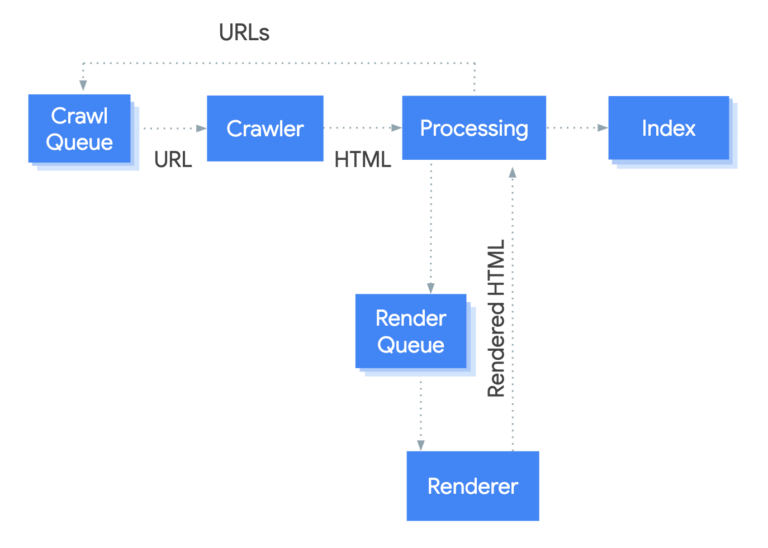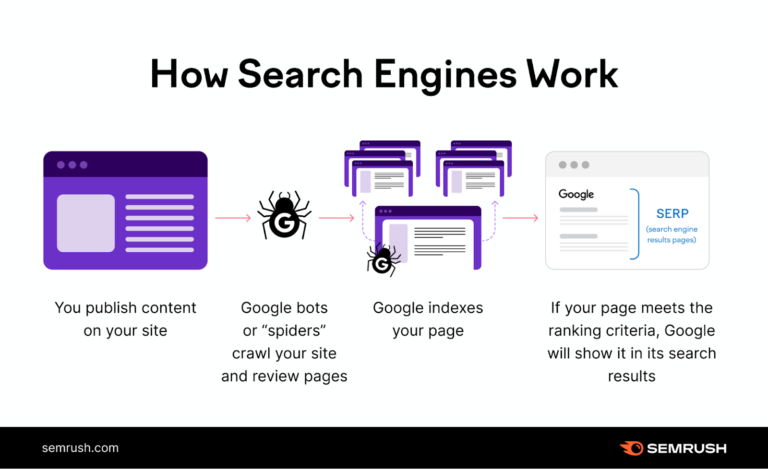Structured data (Schema Markup) enhances search engines’ understanding of your website’s content. This can improve indexing and visibility.
Structured data, or Schema Markup, plays a crucial role in SEO by providing additional context to search engines. It uses a standardized format to classify and categorize content, making it easier for search engines to interpret the data. This can lead to improved search engine results pages (SERPs) and higher organic traffic.
By implementing Schema Markup, websites can achieve rich snippets, which are more visually appealing and informative. These enhanced listings can attract more clicks and improve user engagement. Structured data ultimately bridges the gap between web content and search engines, ensuring better indexing and higher search rankings.

Introduction To Structured Data
Structured data is a way to describe your site’s content to search engines. It helps search engines understand your website better and provide richer search results.
Using structured data, you can mark up elements like products, reviews, and articles. This makes your content more visible and engaging on search engine result pages (SERPs).
What Is Schema Markup?
Schema Markup is a form of structured data. It is a vocabulary of tags or microdata that you can add to your HTML. These tags help search engines understand the context of your content.
For instance, you can use schema markup to specify that a particular piece of text is a review of a product. Or, you can mark up an address, making it clear that it is a location.
Below is an example of schema markup for a review:
{
"@context": "https://schema.org",
"@type": "Review",
"author": {
"@type": "Person",
"name": "John Doe"
},
"reviewBody": "This is an excellent product!",
"reviewRating": {
"@type": "Rating",
"ratingValue": "5",
"bestRating": "5"
}
}
Importance In Modern Seo
Schema markup is critical for modern SEO. It helps search engines index your content more effectively. This can lead to better visibility and higher rankings.
Here are some key benefits of using schema markup:
- Enhanced Search Results: Schema markup can lead to rich snippets. These include star ratings, images, and other visuals.
- Better Click-Through Rates (CTR): Rich snippets can attract more clicks. Users are more likely to click on visually appealing search results.
- Improved Voice Search: Schema markup can make your content more accessible for voice search. This is crucial as more people use voice assistants like Siri and Alexa.
Using schema markup is easy. Most content management systems (CMS) like WordPress offer plugins to add schema markup.
Here is a simple table summarizing the benefits:
| Benefit | Description |
|---|---|
| Enhanced Search Results | Leads to rich snippets with visuals |
| Better CTR | More clicks from attractive search results |
| Improved Voice Search | Makes content accessible for voice assistants |
To sum up, using schema markup can greatly improve your website’s SEO performance. It makes your content more understandable to search engines and more engaging to users.

Types Of Structured Data
Understanding the types of structured data is essential for improving your site’s indexing. Structured data, or schema markup, helps search engines understand your content better. Different types of structured data exist, each serving a specific purpose. Let’s explore some common formats and popular schema types.
Common Formats
Structured data can be implemented in various formats. The most common formats are:
- JSON-LD: JavaScript Object Notation for Linked Data. Preferred by Google.
- Microdata: Tags embedded within HTML content. Not as popular as JSON-LD.
- RDFa: Resource Description Framework in Attributes. Used for complex data structures.
Here’s a quick comparison table of these formats:
| Format | Ease of Use | Popularity |
|---|---|---|
| JSON-LD | Easy | High |
| Microdata | Moderate | Medium |
| RDFa | Complex | Low |
Popular Schema Types
Schema markup offers various types to represent different content. Some popular schema types include:
- Article: Used for news articles or blog posts.
- Product: Describes products, including reviews and prices.
- Local Business: Provides details about local businesses.
- FAQ: Represents a list of frequently asked questions.
- Event: Describes events, including dates and locations.
Implementing these schema types can enhance your site’s visibility in search results. For example:
- Article Schema can improve the appearance of your blog posts.
- Product Schema can display rich snippets for your products.
- Local Business Schema can boost your local search ranking.
Using the right schema types and formats is crucial. This will ensure better indexing and improved search visibility.
Implementing Schema Markup
Implementing Schema Markup can significantly improve your website’s indexing. It helps search engines understand your content better. By adding structured data, you enhance your site’s visibility in search results. This section will guide you through the process of implementing schema markup effectively.
Tools And Resources
Several tools and resources can help you add schema markup to your site. These tools simplify the process and ensure accuracy.
- Google’s Structured Data Markup Helper: This tool helps you create the markup for your content.
- Schema.org: This is the official site for schema markups and provides detailed guidelines.
- JSON-LD Playground: This tool validates your JSON-LD code to ensure it is correct.
- Rich Results Test: This Google tool checks if your page supports rich results.
Step-by-step Guide
Follow these steps to implement schema markup on your website:
- Identify the Type of Content: Determine the type of content you want to markup. Examples include articles, recipes, products, and events.
- Choose the Appropriate Schema: Visit Schema.org to find the correct schema type for your content.
- Create the Markup: Use Google’s Structured Data Markup Helper to generate the code. Alternatively, write the JSON-LD code manually.
- Add the Markup to Your Website: Insert the generated JSON-LD script into the HTML of your web page. Place it within the
section or just before the closingtag. - Test the Markup: Use the Rich Results Test to ensure your markup is correct and can produce rich results in search.
- Monitor and Update: Regularly check your structured data for errors. Update your markup as needed to keep it current.
By following these steps, you can enhance your site’s indexing and visibility. Proper implementation of schema markup is crucial for better search engine performance.
Impact On Search Engine Indexing
Structured data, also known as schema markup, plays a vital role in how search engines index web pages. By providing detailed information about the content, structured data helps search engines understand the context and relevance of your pages better. This can significantly affect how your content is indexed and ranked. Let’s explore some critical aspects of how structured data impacts search engine indexing.
Enhanced Crawlability
Structured data improves crawlability by offering a clear and organized structure for search engines to follow. This makes it easier for search engines to crawl and index your content efficiently. For example, using schema markup for a recipe page can help search engines identify the ingredients, cooking time, and instructions more quickly.
- Search engines can locate key information faster.
- Improves the overall indexing speed of your pages.
- Ensures more accurate indexing of complex content.
Improved Serp Appearance
Using structured data can enhance your SERP appearance by enabling rich snippets. Rich snippets provide additional information directly in the search results, making your listing more attractive to users. This can lead to higher click-through rates.
| Feature | Benefit |
|---|---|
| Rich Snippets | More visually appealing search results. |
| Enhanced Listings | Increased user engagement. |
| Additional Information | Higher click-through rates. |
- Add structured data to key pages.
- Use schema types relevant to your content.
- Monitor your rich snippets in search results.
By implementing structured data, you can significantly improve how your content is indexed and displayed in search results. This can lead to better visibility and higher user engagement.
Seo Benefits Of Structured Data
Structured data, also known as schema markup, offers numerous SEO benefits. It helps search engines understand your content better. This leads to improved indexing and visibility. Let’s dive into the key benefits of using structured data for SEO.
Increased Click-through Rates
Structured data enhances how your content appears in search results. Rich snippets, like reviews and ratings, make your listing stand out. Users find it easier to click on attractive results.
- Rich snippets provide more information at a glance.
- Users trust listings with additional data.
- Better visibility leads to more clicks.
Structured data helps you get rich snippets. This boosts your click-through rates significantly.
Higher Ranking Potential
Search engines reward sites that use structured data. Better understanding of your content leads to higher rankings.
| Benefit | Impact |
|---|---|
| Improved Indexing | Search engines index your content more accurately. |
| Enhanced Visibility | Your content appears in more relevant searches. |
| Increased Trust | Users trust your site more, leading to better engagement. |
Sites with structured data often rank higher in search results. This gives you a competitive edge.

Common Mistakes To Avoid
Structured data, also known as schema markup, helps search engines understand your content. Yet, many make common mistakes. These errors can hurt your site’s indexing and visibility. Let’s discuss some of these mistakes and how to avoid them.
Incorrect Implementation
Incorrect implementation of schema markup is a frequent issue. This often includes:
- Using invalid or outdated schema types.
- Placing schema markup on the wrong pages.
- Failing to follow Google’s guidelines.
Ensure you use valid schema types from the latest schema.org vocabulary. Use tools like Google’s Structured Data Testing Tool to check your markup. Follow Google’s guidelines to avoid penalties.
Overuse Of Schema Types
Overuse of schema types can confuse search engines. Some common overuses include:
- Applying too many schema types to a single page.
- Adding unnecessary details that clutter the code.
- Using schema types that don’t match the content.
Keep your schema markup simple and relevant. Only use schema types that add value to your content. Avoid adding extra details just for the sake of it.
| Common Mistake | Description | Solution |
|---|---|---|
| Incorrect Implementation | Using invalid schema types or placing them incorrectly. | Use valid types, place them correctly, and follow guidelines. |
| Overuse of Schema Types | Applying too many or irrelevant schema types. | Keep markup simple and relevant to the content. |
Monitoring And Updating Schema
Monitoring and updating your structured data (schema markup) is essential for effective indexing. It helps search engines understand your content better. Consistent monitoring ensures your schema remains accurate and relevant.
Performance Tracking Tools
Use performance tracking tools to monitor your schema markup. These tools can help identify errors and areas for improvement.
- Google Search Console: Monitors your website’s performance in search results.
- Schema App: Provides insights into your schema markup.
- SEMrush: Tracks your schema and highlights issues.
These tools ensure your schema is always in top shape. Regular checks can help maintain your website’s search engine performance.
Regular Updates
Regular updates are crucial to keep your schema markup accurate. New content means you need to update your schema.
Follow these steps for regular updates:
- Audit your current schema markup.
- Identify outdated or incorrect data.
- Update the schema to reflect new content.
- Validate the updated schema using Google’s Structured Data Testing Tool.
Keeping your schema updated ensures search engines always have the correct information. This helps maintain your site’s visibility and performance.
Future Of Structured Data
The future of structured data is promising and dynamic. As search engines evolve, so does the importance of schema markup. This tool enhances search engine understanding of web content. Let’s explore the trends and best practices shaping its future.
Trends To Watch
Several trends are shaping the future of structured data. Watch these to stay ahead:
- Voice Search Optimization: More people use voice search daily. Structured data helps search engines understand and answer spoken queries.
- Enhanced Rich Snippets: Rich snippets are becoming more detailed. They provide more information directly on the search results page.
- AI and Machine Learning: AI is improving how search engines read and use structured data. This will lead to better indexing and ranking.
- Mobile-First Indexing: With mobile-first indexing, structured data must be mobile-friendly. Ensure your schema markup works well on mobile devices.
Evolving Best Practices
The best practices for schema markup are also evolving. Here are some to keep in mind:
- Use Up-to-Date Schemas: Always use the latest schema types and properties. This ensures compatibility with search engines.
- Test Your Markup: Use tools like Google’s Structured Data Testing Tool. This helps identify and fix errors in your markup.
- Focus on Relevance: Only use schemas that are relevant to your content. Irrelevant markup can confuse search engines.
- Keep It Simple: Avoid overcomplicating your schema markup. Simple and clear markup is more effective.
By following these trends and best practices, you can enhance your website’s visibility. Structured data is a powerful tool in the ever-evolving world of SEO.
Frequently Asked Questions
What Is Structured Data?
Structured data is a standardized format for providing information about a page. It helps search engines understand the content.
How Does Schema Markup Affect Indexing?
Schema markup enhances search engines’ understanding of your content. This can improve indexing and visibility in search results.
Why Is Schema Markup Important For Seo?
Schema markup helps search engines better understand your content. This can lead to higher rankings and more traffic.
Does Schema Markup Improve Search Visibility?
Yes, schema markup can improve search visibility. It provides rich snippets, which attract more clicks and engagement.
Conclusion
Structured data, or schema markup, is vital for better indexing and improved search visibility. Implementing it enhances your site’s SEO, making it easier for search engines to understand your content. Don’t overlook this crucial tool; it can significantly boost your website’s performance and user experience.
Start using schema markup today.







